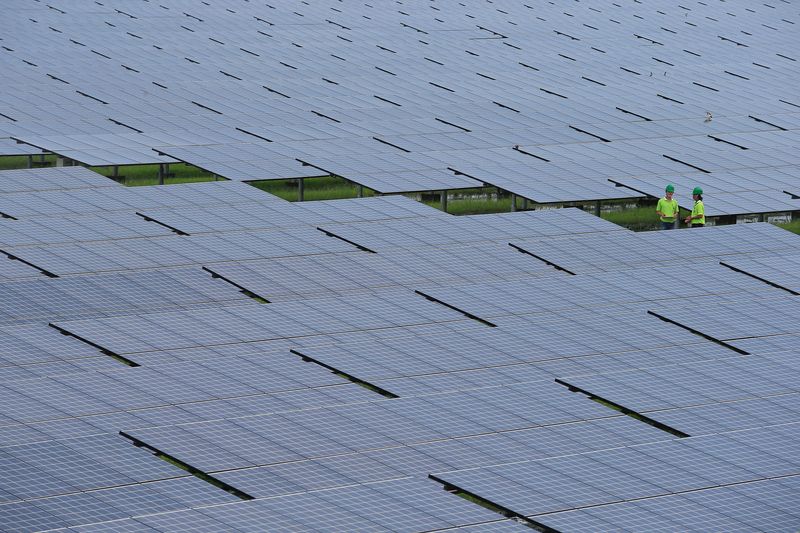Exclusive-Biden to veto legislation to block solar tariff waivers -officials
2023.04.24 11:14

© Reuters. FILE PHOTO: Two employees of SPCG, Thailand’s largest solar farm producer, walk between panels at the farm in Korat, Nakorn Ratchasima province, October 3, 2013. REUTERS/Athit Perawongmetha
By Jeff Mason
WASHINGTON (Reuters) – U.S. President Joe Biden will veto congressional efforts to overturn his policy to waive solar tariffs on four Southeast Asian nations for two years, White House officials told Reuters on Monday.
In June, Biden waived tariffs on solar panels from Cambodia, Malaysia, Thailand and Vietnam in an effort to create a “bridge” while U.S. manufacturing ramped up.
Last week a U.S. House of Representatives committee voted in favor of restoring the tariffs on the solar panels from the four countries, reversing Biden’s suspension. That legislation is expected to come up for a full vote in the House.
The White House argues that Biden’s policy has worked and points to an increase in domestic solar production since Biden came into office.
“This legislation would sabotage U.S. energy security. It would undermine our momentum in creating a massive new domestic industry. It would sideline workers who are fired up to build these projects and operate them across the country,” Ali Zaidi, Biden’s national climate adviser, told Reuters.
“It’s not about slowing things down. It’s about fundamentally undermining our progress towards increased energy security and having the tools we need to attack the climate crisis,” he said.
The United States is on track to increase domestic solar panel manufacturing capacity 8-fold by the end of 2024, another official said.
Biden does not plan to issue an extension on the tariff waivers after the 2-year period has concluded because domestic manufacturing has taken off.
“Given the strong trends in the domestic solar industry, the President does not intend to extend the tariff suspension at the conclusion of the 24-month period in June 2024,” the White House said in a “Statement of Administration Policy” obtained by Reuters before its official release.
“If Congress were to pass this joint resolution, the President would veto it,” it said.








